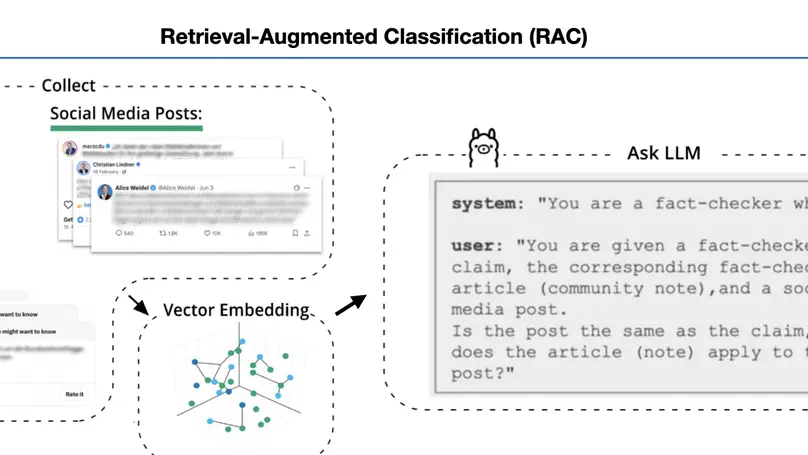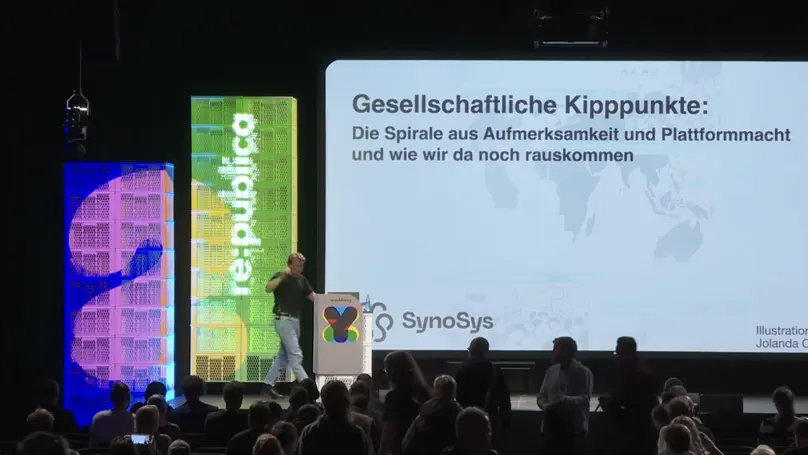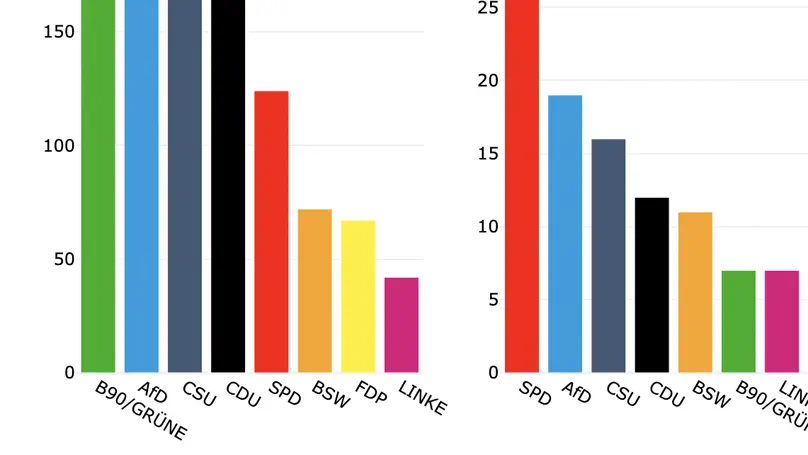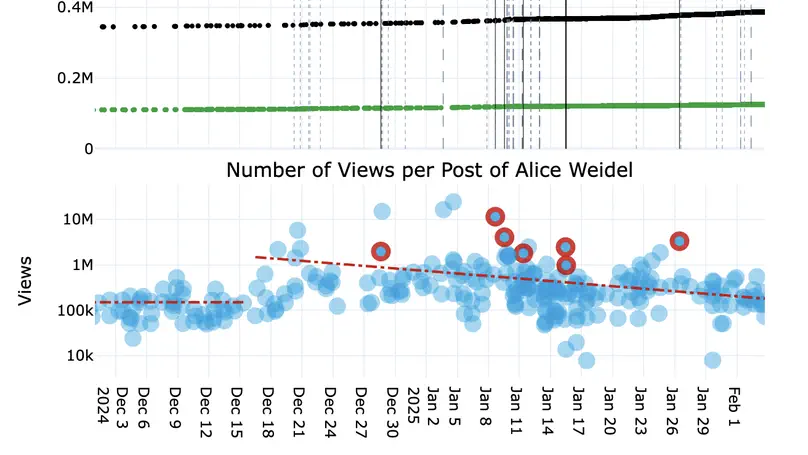
In a new preprint, Sami Nenno together with Kamil Fuławka and Philipp Lorenz-Spreen from our team and Cornelius Puschmann from the University of Bremen use a new text-based method to detect misinformation on social media. The study analyzes more than half a million posts from all German members of parliament and their official party accounts across Facebook, X, Instagram, and TikTok. Using a novel text-matching approach, the researchers link posts to over 5,000 fact-checking articles and 1,500 community notes. Compared to other methods, they identify ten times as many posts that contain misinformation.

On Wednesday, our colleague Philipp Lorenz-Spreen took the stage at re:publica 2025 to address one of the most pressing questions of our digital era:
“Gesellschaftliche Kipppunkte: Die Spirale aus Aufmerksamkeit und Plattformmacht und wie wir da noch rauskommen”
(“Societal Tipping Points: The Spiral of Attention and Platform Power – and How We Might Escape It”)

© [AI] ChatGPT / MPG adapted from the press release
The research team systematically replicated the methodology of the original study and used an updated dataset with studies up to March 2024. The results confirm the findings of the original study: Digital media have many problematic effects on democratic processes, in addition to positive ones. On the one hand, they promote political participation and facilitate access to information. On the other hand, they increase polarization, mistrust in institutions, and populist movements.

Community notes are supposed to curb disinformation on X - but they themselves follow political patterns. A new data analysis shows that Green Party posts are particularly criticised, but their notes are hardly considered helpful. At the same time, there is no clear political trend in the notes that are actually published. Why is this the case? The article analyses patterns in the distribution and rating of the notes and sheds light on the dynamics that can be derived from the data.

Has Elon Musk manipulated X to give the AfD more reach? He has made it clear in posts, articles and election events that he is a fan - and at the same time, Alice Weidel’s reach on X has increased significantly. Could these developments be linked? This blog post describes a data analysis in which we take a closer look at which accounts have received how much reach and whether Musk’s influence can be determined. Where does the sudden increase in Weidel’s reach on X come from?